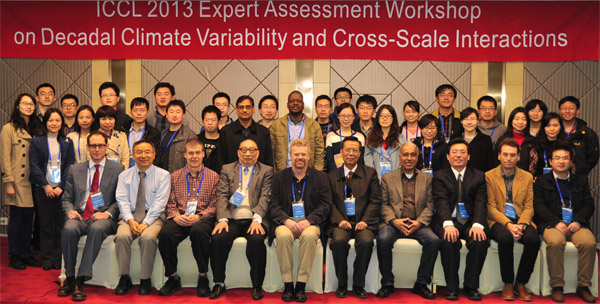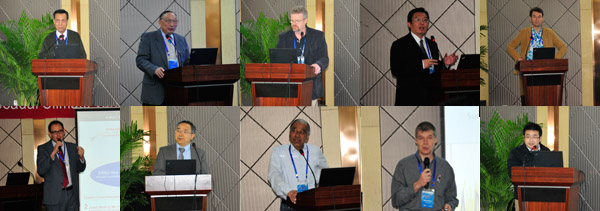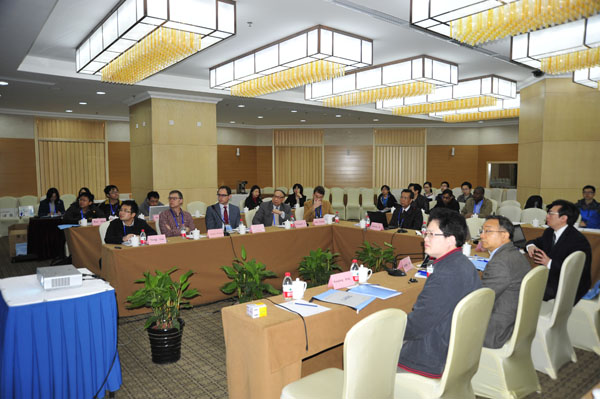The International Commission on Climate (ICCL), one of 10 commissions of International Association of Meteorology and Atmospheric Sciences(IAMAS), held 2013 Expert Assessment Workshop on “Decadal Climate Variability and Cross-Scale Interactions”in Beijing, China on 16-17 April, 2013. The workshop invited 11 keynote speakers from 5 countries, including China, Australia, USA, UK and Germany to deliver themed lectures. About 50 faculty and postgraduate students from Chinese Academy of Sciences (CAS) and National Climate Center (NCC) attended the workshop.
ICCL Executive Secretary and co-chair of the workshop, Prof. Jianping Li of Institute of Atmospheric Physics (IAP), presided over the opening ceremony. ICCL President and co-chair, Prof. Neil Holbrook of University of Tasmania gave opening remarks. He outlined the missions of ICCL and introduced the goal of the workshop: to assess and document key issues and knowledge gaps associated with decadal scale climate variability and cross-scale interactions in a warming world, and key questions for future research, which was closely related to upcoming Fifth Assessment Report of Intergovernmental Panel on Climate Change (IPCC AR5) to be released in 2013.
The workshop is organized within 4 sessions: (1) Is the Interdecadal Pacific Oscillation a real and dynamic feature of the climate system? (2) Cross-scale interactions between El Niño-Southern Oscillation (ENSO), decadal variability and anthropogenic climate change; (3) Unambiguous detection and attribution of anthropogenic climate change above natural decadal to multi-decadal climate variability – how best to do this? (4) Decadal modes on regional climates.
11 invited talks were given by world leading scientists in the field of decadal climate variability, including Matthew Collins (Coordinating Lead Author of IPCC AR5 WG1), Mojib Latif, Thomas Knutson, Emanuele Di Lorenzo, Feifei Jin, Ronghui Huang, Guoxiong Wu, Chognyin Li, Neil Holbrook and Jianping Li. Scott Power (CLA of IPCC AR5 WG1) gave his talk remotely by phone from Australia. The talk was well received. Another highlight of the workshop is that discussion follows the way that IPCC works, assessing and documenting literature. Plenty of time is left in each session after talks for discussion. Speakers together with participants had intensive discussion on four session themes and agreed on generating potential outcomes in international journal.
The workshop is hosted by ICCL and organized by State Key Laboratory of Numerical Modelling for Atmospheric Sciences and Geophysical Fluid Dynamics (LASG)/IAP, CAS. Dr. Ruiqiang Ding of IAP is the chair of Local Organizing Committee. The workshop was co-sponsored by National Natural-Science Foundation of China (NSFC), China Association of Science and Technology (CAST), LASG/IAP, CAS, National Basic Research Projects (973 Project, Grant No. 2010CB950400), CAS Project (Grant No. XDA05090403), CNC-IUGG, International Union of Geodesy and Geophysics (IUGG), and International Association of Meteorology and Atmospheric Sciences (IAMAS).
The participants all agreed that the workshop is inspiring and fruitful. It provided a unique platform for exchanges not only for ICCL members, but also for decadal climate variability research communities outside the commission. Also it promoted Chinese scientists participation in top international scientific assessment report.



